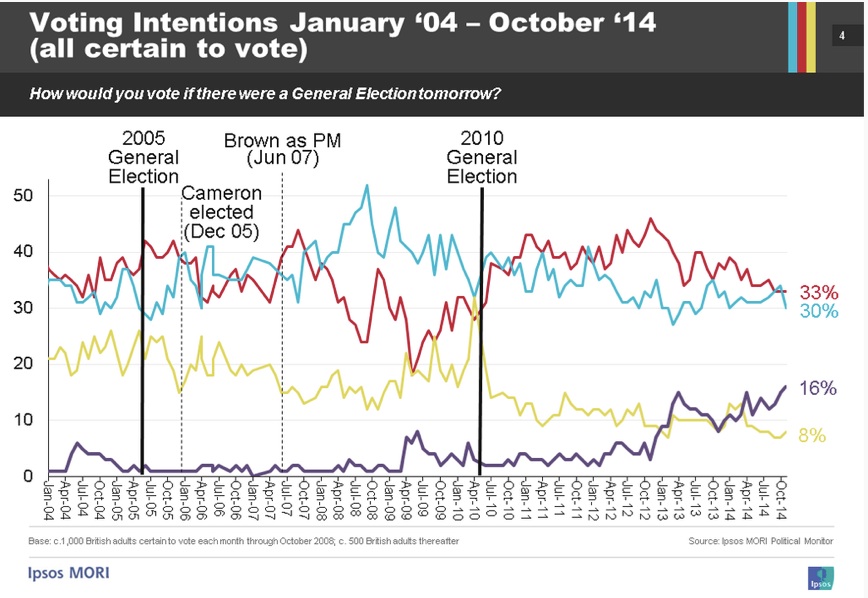Like many people, I’m wondering what one could do to help the people dealing with Ebola on the ground in Africa. So far, the only answer I’ve come up with is to donate money to the Disasters Emergency Committee. But when I see the modelling predictions coming from the CDC in Atlanta — which predict that if things go on as they are, Ebola will be hitting the 1.4 million mark by January in those countries, I wonder whether most people in the UK or the US are aware of how serious this could be for the world.
Dave Winer pointed me to a must-read piece in Wired, which in turn pointed me to an extraordinary blog post by two risk-communication experts, Jody Lanard and Peter Sandman. They write:
The possibility of an Ebola pandemic throughout the developing world is the scenario that keeps us up nights. We think it must keep many infectious disease experts up as well. But few are sounding the alarm. The two of us are far less worried about sparks landing in Chicago or London than in Mumbai or Karachi. We wish Dallas had served as a teachable moment for what may be looming elsewhere in the world, instead of inspiring knee-jerk over-reassurance theater about our domestic ability to extinguish whatever Ebola sparks come our way. We are glad that Dallas at least led to improvements in CDC guidelines for personal protective equipment and contact tracing, and belatedly jump-started front-line medical and community planning and training. But it doesn’t seem to have sparked the broader concern that is so vitally needed.
Americans are having a failure of imagination – failing to imagine that the most serious Ebola threat to our country is not in Dallas, not in our country, not even on our borders. It is on the borders of other countries that lack our ability to extinguish sparks.
That metaphor of jumping sparks seems to me to be prophetic.
Here’s what they think would be necessary to stop Ebola becoming endemic. Call this the Optimistic Scenario:
The people of West Africa and the governments of West Africa rise to the occasion, radically altering deeply embedded cultural practices, from political corruption to the way they bury their dead.
The epidemic stops spreading exponentially, so the gap between needs and resources stops getting wider every day than the day before.
The world’s nations actually fill that gap, providing enough money, supplies, and people to outrace the epidemic.
Treatment, isolation, contact tracing, and contact monitoring reach the percentage of cases needed to “break the epidemic curve.”
Meanwhile the epidemic doesn’t cross into too many more countries. And all the sparks that land in other countries are extinguished with minimal collateral damage, as has been the case so far in Nigeria, Senegal, Spain, and the United States. (As of the evening of October 23, the U.S. now has a second index case to cope with.)
Fears that sparks will travel more widely and launch new epidemics in Asia, Latin America, and elsewhere prove unfounded.
Or, alternatively, a spectacularly successful vaccine is quickly discovered, tested, mass-produced, and mass-distributed.
Having read it, you can see why I call it the optimistic scenario. It looks implausible, I’m afraid. So what’s the outlook if it turns out to be indeed too optimistic?
What would it be like, Lanard and Sandman ask…
if there are dozens of sparks landing in the U.S. and other developed countries, not just from West Africa but from all over the world?
if healthcare workers won’t come to work?
if cancer patients and HIV-infected persons and children with asthma can’t get their medicines because 40 percent of generic drugs in the U.S. come from India, where production and shipping have halted?
if refugees, under pressure from civil unrest, insurrection, famine, and economic collapse, are pouring across every border – some sick, some healthy, some incubating?
if Ebola in the developing world launches the next Global Financial Crisis?
if the Holy Grail, the deus-ex-machina – a successful Ebola vaccine – cannot be developed, produced, and distributed before all this happens?
OK. So what would it be like? And might it be worth taking the threat more seriously than we are doing? You can see why the markets are spooked by Ebola.
And what are the pharmaceutical giants doing? They previously ignored Ebola because it was a disease that only affected poor people and therefore offered little prospect of commercial reward. (Not a criticism, just a fact.) Are the governments of the world now leaning on them?

